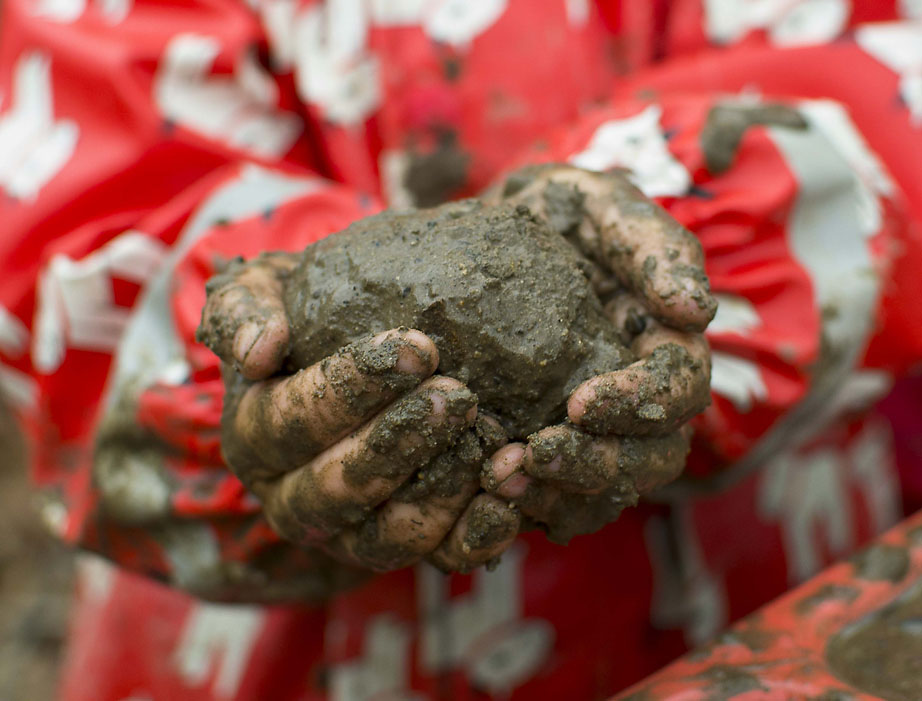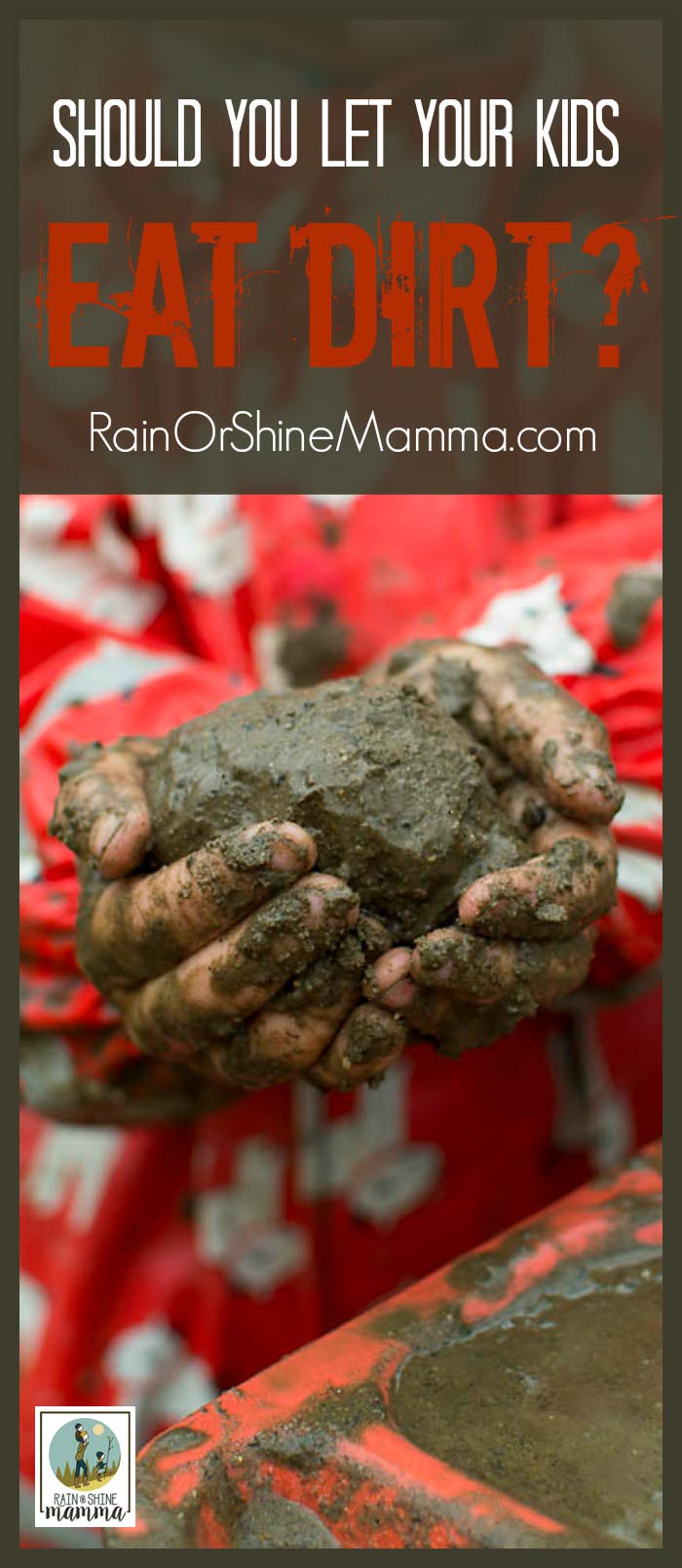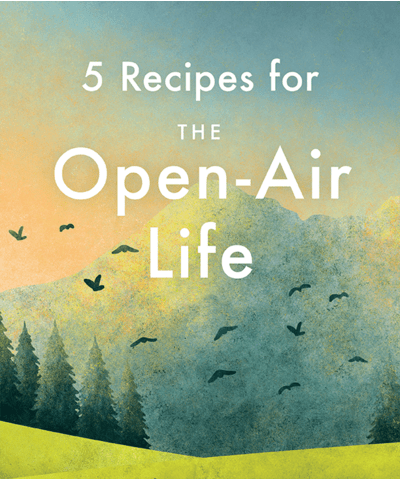When you think of kids, cleanliness may not be the first thing that comes to mind. After all, these are the creatures that rejoice in slobbery dog kisses straight on the mouth, find bath time overrated and, let’s be honest, rarely miss the chance to engage in a good booger-eating session. The list of gross things that children will engage in goes on, partly because they haven’t yet learned the social norms that prize cleanliness and hygiene above all, and partly because when you’re three years old, rubbing mud in your face is just a lot of fun.

As parents, we often feel compelled to perform damage control, one pocket-sized hand sanitizer at a time. “Don’t touch that!”, “Spit that out!” and “Wash your hands,” have become the rallying cries for parents trying to protect their protégés from germs and social ostracization in the modern world. But what if a little dirt isn’t quite as bad for us as we think it is? What if some germs are actually good for us? And what if excessive cleanliness and antibiotics use is a bigger problem in the developed world than the fact that your kid stuck a finger in his mouth after going to the petting zoo?
In Are Your Kids Too Clean? Germs vs. Playing Outside, I argue that while improved sanitation, vaccines, antibiotics and pasteurization have saved millions of lives in the past century, we’ve made our children’s – and our own – lives a little too sanitary. I know that many other parents share the feeling that our children need less Chlorox and more soil microbes in their lives. The problem is that we don’t always know how to promote the good germs that keep us healthy, while at the same time protecting ourselves against harmful microbes that cause diseases.
Enter Let them Eat Dirt: Saving Your Child from an Oversanitized World by B. Brett Finlay and Marie-Claire Arrieta (2016, Algonquin Books). Not only does this book prove how our intestinal health has become collateral damage in the war against microbes, it also shows us how to limit the casualties by nourishing our microbiota, i.e. the trillions of microorganisms that inhabit our intestines. In the process, the authors argue, we can help protect our children against chronic illnesses like inflammatory bowel diseases, allergies, autoimmune diseases, autism, diabetes, and even obesity.
Researchers are just beginning to understand the many and complex ways our microbiota affect our and our children’s health, and this book doesn’t claim to have all the answers. But it does offer some interesting findings:
-
- C-sections and antibiotics use during pregnancy or labor may contribute to a higher risk of obesity, allergies and asthma for the child later in life. To give the baby a diverse microbiota after birth, some hospitals will offer to “seed” it by swabbing the inside of the baby’s mouth with secretions from the mother’s vagina.
- Breastmilk shapes the bacterial eco system of a baby’s gut and strengthens his or her immune system. Don’t think that feeding your baby formula is an inferior form of parenting, but if you do, consider complementing it with pediatric probiotics to make it more similar to breast milk.
- If a pacifier falls on the ground while you’re out hiking, it’s perfectly fine to remove the visible dirt and give it back to your child, or just “clean” it by putting it in your own mouth first. In fact, this may help strengthen the child’s immune system.
- Children should be outside often, and be allowed to go barefoot and get dirty. While hand washing is one of the best ways to prevent common infections, it doesn’t necessarily have to follow immediately after playing outdoors or with other children. When washing, avoid antibacterial soap and hand sanitizers – plain old soap and water does the same job without killing beneficial microbes.
- Letting your dog interact closely with your kids – yes, even licking them – can decrease their risk of developing allergies and asthma.
- Sandboxes have a higher concentration of microbes than other playground features, but the risk of contracting a disease from one is low, especially if you follow hygienic practices like hand washing afterwards.
So what about the question posed in the title of this post? Obviously you shouldn’t shove a bucket of dirt in a newborn’s mouth but, according to the authors, there’s no reason to freak out if your child happens to sample a little mud. “Do let your kid be a kid and interact with their world, and develop as kids have for the past million years. Let them eat dirt!” is their common sense advice.
Disclosure: I received a copy of Let Them Eat Dirt in order to facilitate this review. All opinions are my own.



Totally agree regarding dirt. Don’t agree about swabbing vagina nor putting pacifiers in parents’ mouths.
Why?
Why don’t children have a bad breath in the morning? Because they don’t have that bacteria that causes cavities in their mouth. Or at least they have less of them. They’ll get it at one point or another, from licking something or from sharing food with a friend. But delaying it is good for their teeth. So keep your own germs to yourself. Not to mention herpes. It’s quite common, not everyone has visible recurring episodes. But there’s no benefit of being exposed to herpes, especially not newborns, or babies. They might get it eventually, from you or others, but don’t inflict it on them. Same about vaginal swabs. There are STDs, some that you may not be aware of. If you checked yourself to all possible STDs and you have had none – go ahead and swab, if you want, but I’d rather not. And I think it’s better to put more energy into trying to breastfeed (and I know it’s hard), then swabbing your newborn with all your past relationships. Face it – life is different now – people also tend to have more sexual partners at the time that they have their children than what they used to 200 years ago. Not because “in the good old days everyone waited with sex until they got married” – that’s just a myth. Mostly because of contraceptives, delayed parenting.
But eating dirt, some (non toxic) plants, grass, all that – go for it. Then again, there are pesticides and other harmful stuff on our lawns – so who knows?
One thing is for sure – being stressed probably causes more damage than most virus and bacteria, present or missing.
And another point – playing with dirt, with sand – is so relaxing, and helps fine motor skills (and gross motor skills), and helps develop social skills. So do get dirty!
Hi Miriam – Thanks for your comment; I’ll try to elaborate a little bit on some of the authors’ advice to address your concerns. A woman’s vagina contains a high number of microbes, and all babies that are born vaginally are automatically coated in their mother’s microbiota on their way through the birth canal. Many are exposed to the mother’s fecal matter at the birth as well. These microbes will then colonize the baby’s own gut, where they help with the digestion of breast milk and contribute to the development of the baby’s immature immune system. Seeding a baby born with C-section with secretions from the mother’s vagina is simply a way to mimic a natural process which they otherwise miss out on. I don’t know enough about microbiology to say whether it’s something the mother should be doing on her own, but the examples in the book refer to cases that were done under supervision at a hospital. More research is needed in this area, but a study on the procedure of seeding cited in the book showed very promising results. As far as the pacifier issue goes, you’re right that there may be an increased risk of the parents passing on cavity-inducing microbes, but it seems like this is mainly the case for parents who are prone to tooth decay. On the other hand, another small study showed that children whose parents cleaned their pacifiers by sucking on them were significantly less likely to develop allergies at ages 18 and 36 months. So there’s always more than one way to look at things:o)
Hi Linda,
Thank you for your reply. I do not know the details of studies, but I did hear before that going through the birth canal is probably a good thing. But there are soooooo many factors involved. There might be different secretions during childbirth (why not? so many hormones are involved in the process). Do the babies need to be massaged with the vaginal secretions? Or should it be put into their mouths? From the way that you described it – it sounded like a ‘do-it-yourself” swab, so I’m glad to hear that you were referring to a practice done under medical guidance. Still, personally I wouldn’t have done that, if my daughter wasn’t born vaginally. And there are so many studies ahead. Life is so complex and creating a life involves sooo many systems of the body, and hormones, and what not. It’s not a simple thing of just ‘more bacteria’ is good and there are many differences except bacteria between vaginal and C sections. I wouldn’t just summarise them into “swab – and you get the same result”. Besides, some infections are quite brutal, if they are on the first months. And most of the immune system of the baby is formed already during pregnancy (antibodies passed through the placenta) – so it’s not like the vaginal canal plus breastfeeding are the ONLY sources for developing a good immune system.
But once the babies start moving, at 6 months and later, walking at around 1 year – then infections are more ‘welcome’ and not as worrisome.
Anyways – just happy that you clarified that it’s not a home made practice just for the heck of it.
Regarding caries and saliva contact – there are different conclusions in different researches.
There are probably many causes to allergies, many that we don’t know (that’s why so many suffer from them), and bacteria may be part of the answer or may not be. Maybe in 10 years we’ll find out it was a totally different reason, and that bacteria exposure just solved part of it, in an indirect way. Again, I personally wouldn’t use a vaginal swab, but I do think that dirt is good. From my personal experience, with only one child – she is very healthy, rarely sick, was breastfed for more than 3 years, and had a cat and was never in a sterile environment. But I’m sure that her health is not only due to the fact that our house is messy and I don’t get around to cleaning as often as I should, hahhahahaha
YES! and let them wrestle with the dog! I agree, we are over-sanitized. The sickest people I know are the cleanest. And it’s ok to leave a little dirt on your veggies…
There’s definitely plenty of dog wrestling going on at our house, lol…